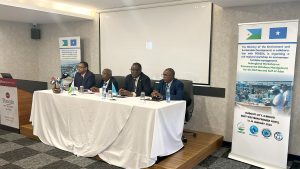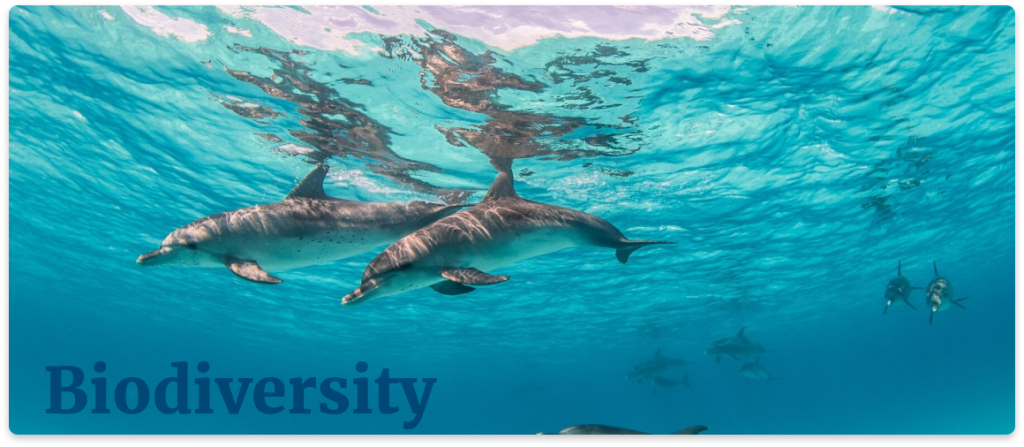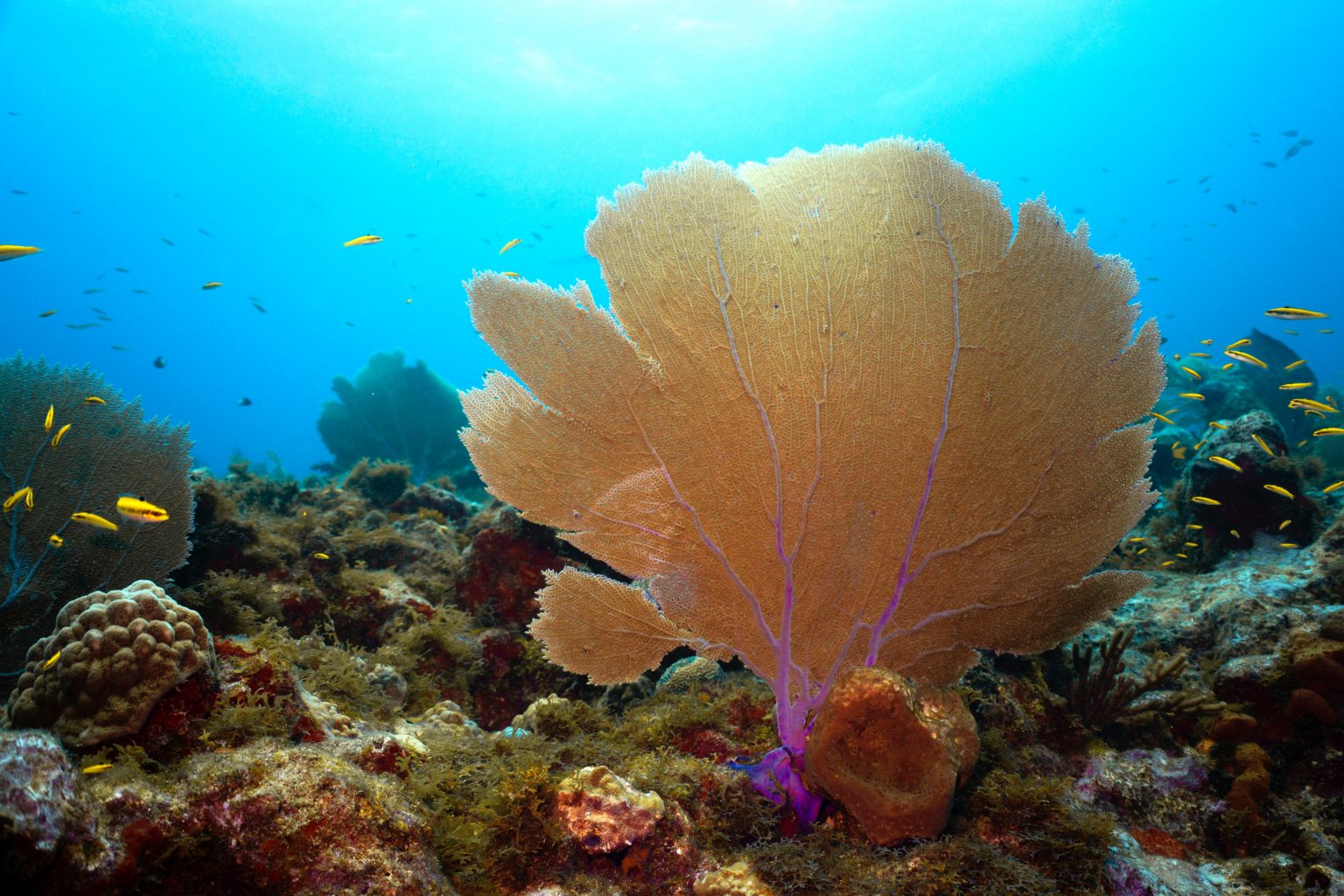Program overview & vision

The Red Sea and Gulf of Aden is a globally significant marine ecosystem and are renowned for their diversity of ecosystems, habitats and species, the numbers of endemic species, and their biogeographic significance. A consequence of the diversity of habitats in the Red Sea and Gulf of Aden is the great species richness of marine flora and fauna.
The Red Sea is one of the most important repositories of marine biodiversity on a global scale.
The global conservation values of the Red Sea and Gulf of Aden include: the diversity of coral reef habitats in the central Red Sea of Saudi Arabia and Sudan; its distinct zoogeography and number of endemic species; the unique coral reefs around the Sinai; the atoll-like formation of Sanganeb Atoll in Sudan; extensive stands of mangroves and populations of dugong and turtle in the southern Red Sea; the unique biodiversity of the Socotra Archipelago; and, the extensive stocks of commercial fishes and high rate of primary and secondary production in the Gulf of Aden.
More than 300 reef-building corals, more than 1300 fish species and hundreds of marine invertebrates and marine mammals call the Red Sea and Gulf of Aden their home. Many are key resources for nearby coastal communities.
However, rapid development and growing human usage threaten the sustainability of current uses and the conservation values. In several countries there has been the development of petroleum-based economies that require sea transport and port facilities for petroleum exports. The growth of international dive tourism has caused destruction of coral reefs in heavily visited reefs. General population growth in the coastal zone has led to localized habitat destruction and modification and the release of pollutants. Stocks of invertebrates, fishes, and sharks (and their associated ecosystems) are affected by over-fishing. The ability of many countries in the region to address issues will be constrained by limitations in both technical expertise and the required experience in management. Despite the enormous economic growth that has occurred in some countries, many coastal communities continue to rely for their livelihood on small-scale usage of marine resources, especially fisheries. The social and economic structure of these communities is threatened by the accumulated impacts occurring within the marine and coastal environments This program focuses on creating and effectively managing marine biodiversity areas and establishing and promoting sustainable uses. By addressing direct and indirect threats to coastal and marine biodiversity, PERSGA Marine Biodiversity program works to ensure a sustainable future where nature and people can thrive.
Mission and Objectives

1
To provide for the conservation, protection and restoration of the health and integrity of the ecosystems and biological diversity in the Red Sea and Gulf of Aden .
2
To safeguard the threatened species, the critical habitats, sites of particular importance, as well as representative types of coastal and marine ecosystems, their biodiversity and their sustainable use and management, to ensure long-term viability and diversity.
3
To adopt strategies, plans and programs for the conservation of biodiversity and the sustainable use and management of marine and coastal biological resources.
4
To realize tangible improvements in human and community wellbeing for communities adjacent to marine and coastal areas.
Activities and Outcomes
- The signing of the Protocol Concerning the Conservation of Biological Diversity and the Establishment of Protected Areas by PERSGA member states in December 2005 was provided a regionally coordinated approach to conservation.
- Regional action plans (following regional surveys) were developed for coral reefs, mangroves, marine turtles and breeding seabirds and are being implemented nationally via national action plans.
- Detailed assessments of the coral reefs of PERSGA countries were undertaken and a regional status report was published (2010).
- A manual of standard survey methods was published, covering methods of rapid assessment, intertidal habitats and mangroves, corals and coral communities, seagrass and seaweeds, subtidal habitats, reef fish, marine turtles, seabirds, and marine mammals during 2004. The manual was updated during 2019 by adding four methods to cover monitoring of fisheries, water quality, Management Effectiveness Evaluation of marine protected areas and monitoring of Socio-economic parameters. The development of standard survey methods will facilitate the acquisition of population data and monitoring.
- Training and capacity building in the standard survey methods has produced regional specialist teams competent to carry out the standard survey methods. Regional training workshops were held for mangroves and intertidal habitats; marine turtles; marine mammals, ornamental fish sampling, IUCN Red List, data collection and analysis of the aquarium fish trade; corals and corals resilience; seagrass and algae; breeding seabirds; elasmobranch identification, sampling and stock assessment methods.
- Installation of mooring buoys (to reduce anchor damage on dive sites) along the submerged reef off Jeddah (KSA) and Aqaba reefs (Jordon).
- PERSGA was integrated current research and monitoring into global initiatives such as the International Coral Reef Initiative (ICRI), the Global Coral Reef Monitoring Network (GCRMN), and the ongoing research and monitoring of PERSGA countries.
Gallery
Latest News
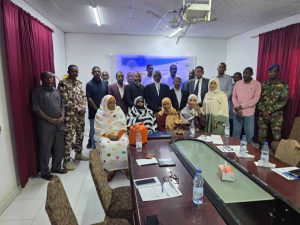
National Training Workshop on “Collection and Management of Fisheries Statistics …
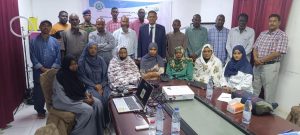
PERSGA Concludes National RIMS Training Workshop in Sudan
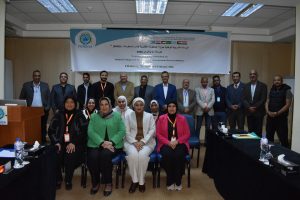
PERSGA Successfully Conducts National Training Workshop on Regional Information Management …
